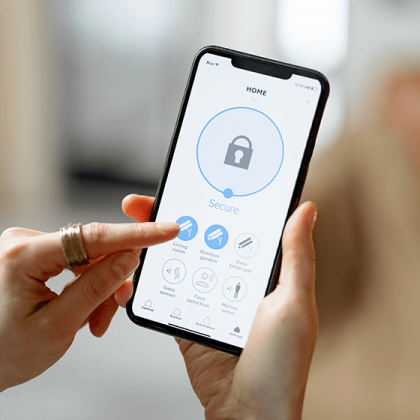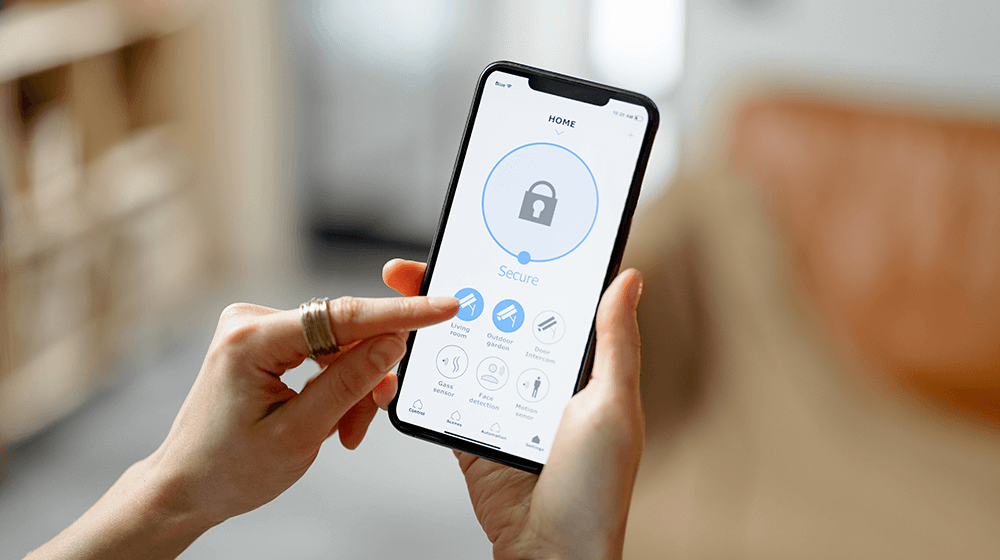Feature your business, services, products, events & news. Submit Website.
Breaking Top Featured Content:
Boost Your Smartphone Security with These Simple Tips


Not only can mobile devices keep you connected to the world, but they also store a wealth of personal information. That’s why it’s important to take steps to protect your smartphone’s security. In this article, we’ll discuss 15 smartphone security tips to help you do just that.
Why it’s ‘Smart’ to Use Smartphone Security Features
Cybercriminals are always looking for new ways to target smartphones, and as operating systems become more complex, it becomes easier for them to find vulnerabilities to exploit. That’s why it’s so important to have a secure smartphone.
3 Ways Smartphones are Likely to be Breached
With a significant amount of our personal and financial information stored on our smartphones, it is crucial to understand the associated risks. Here are three common ways that our mobile phones may be compromised:
- Operating system vulnerabilities: Whether it’s an out-of-date version of the iOS or Android open-source operating system or a malicious app that slipped through the cracks, OS vulnerabilities can leave your phone open to attack.
- Banking information: When your phone is hacked, your banking information may become vulnerable. This can result in fraud or identity theft, potentially leading to a drained bank account.
- Unauthorized access: Although your phone may be secured with a password or fingerprint sensor, there is still a risk of it ending up in the wrong hands. If your phone is lost or stolen, a thief could gain access to all of your personal information.
Tips for Keeping Your Smartphone Secure
Your smartphone is one of your most personal devices and holds a significant amount of private data. Therefore, it’s crucial to ensure that your Apple iPhone, Android device, or other smartphone is as secure as it can be. Here are some tips to help you achieve the highest level of Smartphone Security:
Lock your phone with a PIN, pattern, or password
One way to have a secure phone is to lock it with a PIN, pattern, or password. That way, if it ever falls into the wrong hands, security features like this will keep your phone protected and the person won’t be able to access your data or apps.
Create Strong Passwords
Always generate strong and unique passwords for your personal accounts. Steer clear of easily guessed words or phrases, such as your name or birthdate. Additionally, refrain from using the same password across multiple accounts. If one account is breached, all of your other accounts could be at risk too.
Keep Your Operating System and Apps Up to Date
Make sure you have the latest version of your operating system and apps. Hackers are constantly looking for vulnerabilities to exploit, so companies push out security updates to help keep your phone more secure.
Install Antivirus Software
Another way to have a secure smartphone is to install reputable antivirus software. This will help protect your phone from malware and other threats.
- READ MORE: What Is Cybersecurity
Set up Remote Wipe in Case your Phone is Lost or Stolen
If your phone is lost or stolen, you can remotely erase all data from the device to protect your personal information from unauthorized access. Most smartphones come with this feature pre-installed, and some models even include hardware-based kill switches.
Don’t Store Sensitive Data on Your Phone
You shouldn’t store data that are sensitive on your phone, like your social security number or credit card information. If your phone is ever lost or stolen, this information could fall into the wrong hands.
Avoid Clicking on Links or downloading Files from Unknown Sources
If you receive a text message from an unfamiliar number containing a link, avoid clicking on it. This could be a phishing attempt designed to steal your personal information.
Hide iPhone and Android Phone Messages
For iPhones or Android devices, you can choose to hide message previews from the lock screen so that no one can see them unless they unlock your phone.
Be Careful with Wi-Fi and Bluetooth Connections
Public WI-FI networks have security issues, so avoid doing things like online banking or shopping on these networks. And avoid pairing your phone with unknown Bluetooth devices, as they could be used to hack into your phone.
Use Authentication Technology
There are many authentication options available to help keep your phone secure, like two-factor authentication or biometric authentication. They add an extra layer of security to your device.
Download Apps Only from Trusted Places
Only download your phone apps from trusted places, like the Apple App Store for iPhones or Google Play Store for Android phones. Unknown websites offering third-party apps could be malicious to your mobile device.
Make Sure Apps Don’t Access Permission Settings
When installing an app, check what permission settings it’s asking for. If an app doesn’t need certain permissions, like location services, then don’t give it access.
Use Your Smartphone’s Privacy and Security Settings
Most smartphones have built-in privacy and security settings that you can customize to your liking. You can choose to have a lock code, fingerprint sensor, or face ID technology to unlock your phone.
Audit Your Smartphone’s Privacy and App Permissions
You should routinely review your smartphone’s privacy settings and permissions to ensure that no changes have occurred without your awareness. This practice will assist you in identifying any possible security risks.
Protect Against SIM Swapping
SIM swapping attacks are a type of identity theft where someone gains access to your phone by using your SIM card. You can protect yourself from this by setting up a PIN code for your SIM card or using a service like Google’s Project Fi, which has built-in security features.
What are the Top Secure Smartphones?
With so many smartphone options out there, how do you know which are the most secure phones? We’ve done the legwork for you with this list of five of the most secure smartphones on the market:
- iPhone 13 Pro Max. The iPhone 13 Pro Max utilizes Apple’s iCloud Private Relay for online security, which allows users to browse the internet without being tracked by sites. There were also rules that were implemented in iOS 14 limiting the collection of user data by app makers.
- Google Pixel 6. The Pixel 6, powered by the Android OS and the Google Tensor system on a chip (SoC), employs a multifaceted strategy for security. It incorporates TrustZone technology, enabling the secure storage of sensitive data in a protected section of the smartphone.
- Purism Librem 5. This phone has three hardware kill switches. One disables the camera and mic, the second switches off power from any wireless adapters, and the third stops all network connectivity which includes GPS.
- Sirin Labs Finney. This blockchain smartphone features a comprehensive cyber security suite, including a 24/7 intrusion prevention system and a cryptocurrency wallet cleverly concealed behind a retractable display on the back of the device.
- Bittium Tough Mobile 2C. Here’s a secure smartphone that comes with two operating systems to ensure data separation. Other security features include a YubiKey 5 NFC security key to support 2FA, and an always-on VPN.
READ MORE:
- What is Cybersecurity
- Password Generator Options
- Cybersecurity Statistics Small Businesses Should Know
- Protect Your Phone and Tablet on the Road with These 3 Things
Image: Envato Elements
This article, “Boost Your Smartphone Security with These Simple Tips” was first published on Small Business Trends

